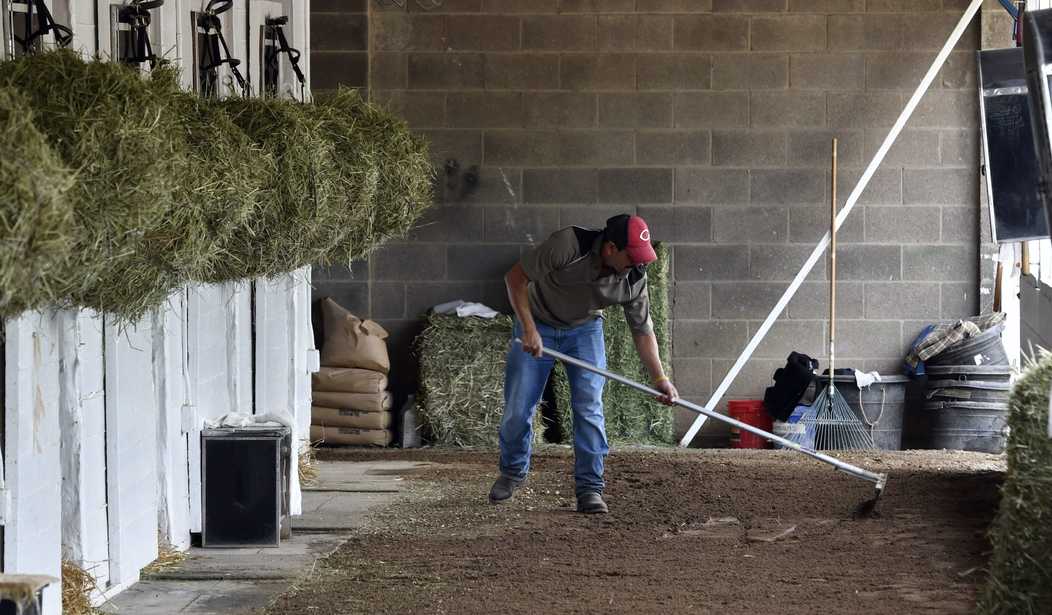WASHINGTON – America’s reluctance to take low-skilled labor is preventing people from gaining valuable skills that allow career advancement, a former Health and Human Services official said Tuesday.
Wade Horn, HHS’ assistant secretary for the Administration for Children and Families under President George W. Bush, who now works as a public sector consultant for Deloitte, described his first job during a conversation at the American Enterprise Institute: picking golf balls at a local driving range, which he said instilled a proper work ethic, good time management skills and an ability to take direction well.
Today, he said, people immediately expect to land a good job with great opportunity for career advancement. It would be silly, he said, to think that his first job was a “lousy” one because he’s not a golf professional today.
“Work is not static. It is dynamic,” Horn said. “We need to get rid of this idea that the only good job is a job that has career ladder potential because people learn very important skills in any job.”
Horn also described anecdotally how one of his cousins started out flipping burgers at Wendy’s before eventually owning 30 franchises and being inducted into the company’s hall of fame. He said that the U.S. will never tackle poverty if it insists on this attitude that work is not worth doing if the job doesn’t immediately pay “$25 an hour” or better.
Horn did not discuss extensively how wages, particularly in the middle class, have been stagnating for decades. According to the Economic Policy Institute, wages for middle class America rose at less than 0.2 percent per year between 1979 and 2013. NPR reported this summer that wages across the board grew at a rate of about 2.5 percent, when it should be closer to 3.5 percent, according to experts.
According to data compiled by Statistic Brain from the Department of Health and Human Services, Department of Commerce and the Cato Institute, about 67.9 million Americans receive government assistance, or 21.2 percent of the population. Of those welfare recipients, 39.6 percent are black, 21.2 percent are Hispanic, 18 percent are Asian or Pacific Islander, and 16.8 percent are white. U.S. Census data from 2012 shows that participation rates are highest for Medicaid, at 15.3 percent, and the Supplemental Nutrition Assistance Program, or food stamps, at 13.4 percent.
Tuesday’s panelists agreed that there are too many people in the U.S. who gladly cash in on government subsidies but are not willing to exert the effort to justify it.
“The basic problem I think in the United States is that too many people don’t work,” said Ron Haskins, a former senior adviser for welfare policy under President George W. Bush and current Brookings Institution fellow. “There’s no question that it’s getting worse. It’s been getting worse for 40 years. So we should not rescue people who don’t work without getting something in return.”
Horn noted that more than 50 percent of work-eligible participants in the Temporary Assistance for Needy Families (TANF) program did not log a single work-related hour in the month prior to enrolling. That includes preparing to go to work, looking for work, training or education.
“It’s stunning when people tell me we are running great welfare-to-work programs through the TANF program,” Horn said. “I say, ‘How can you be doing that when so few people are engaged in doing even an hour?’”
Robert Rector, one of the key architects of welfare reform legislation in 1996 and a fellow at the Heritage Foundation, argued for stronger work requirements for programs like TANF. He described it as “simply dumping water in the middle of the Sierra Desert.”
“Money just disappears within state bureaucracies,” Rector said.









Join the conversation as a VIP Member